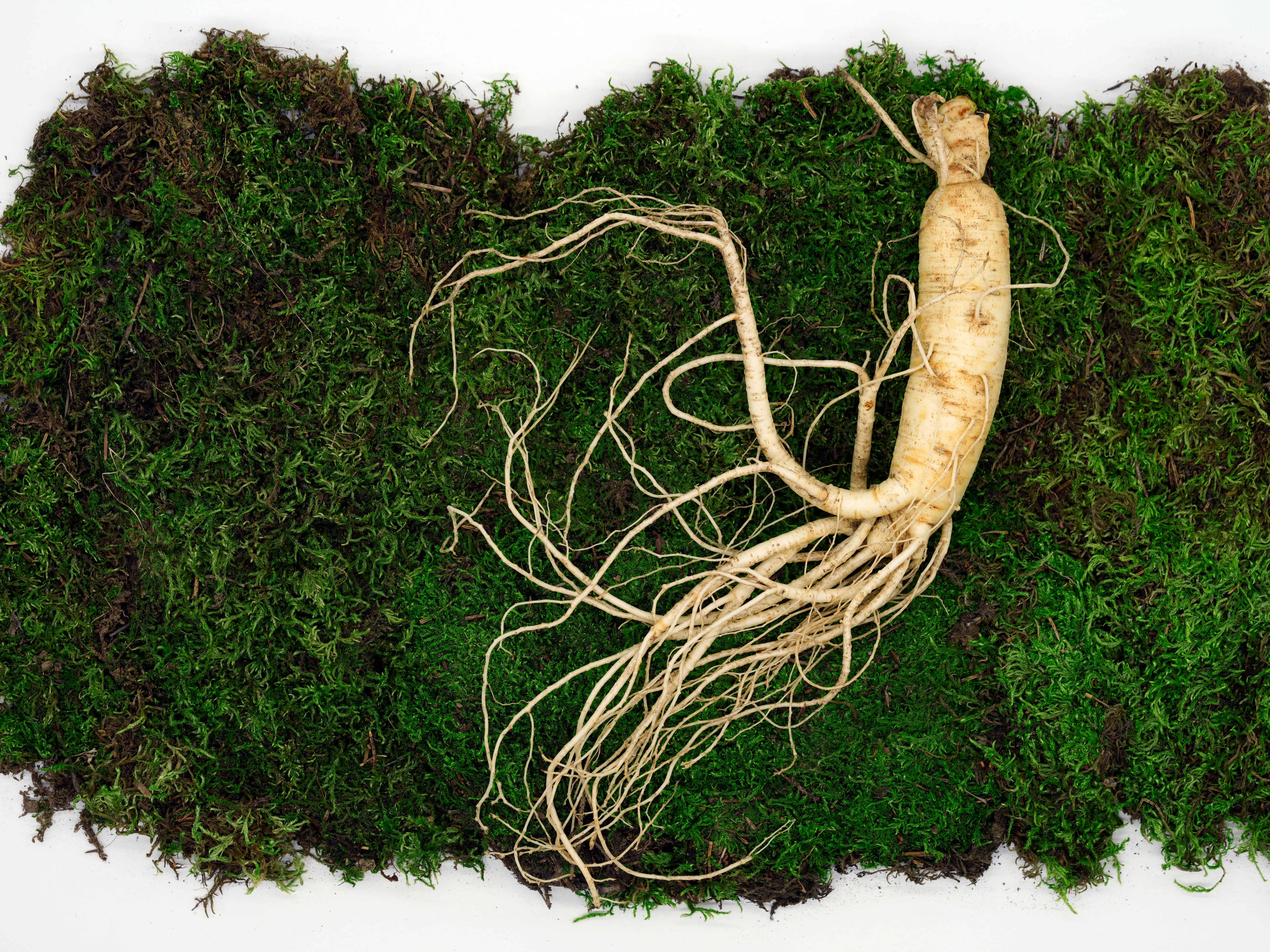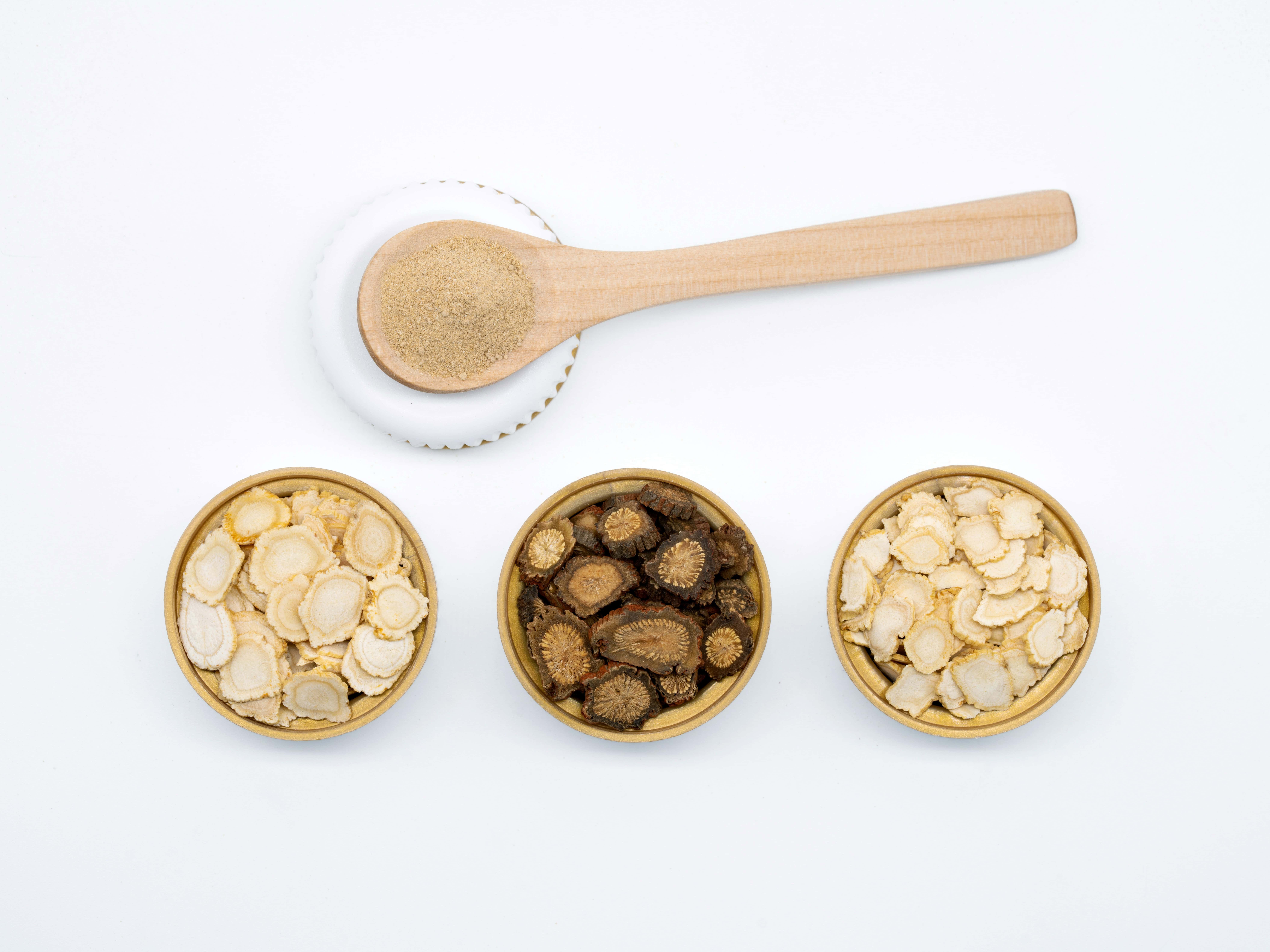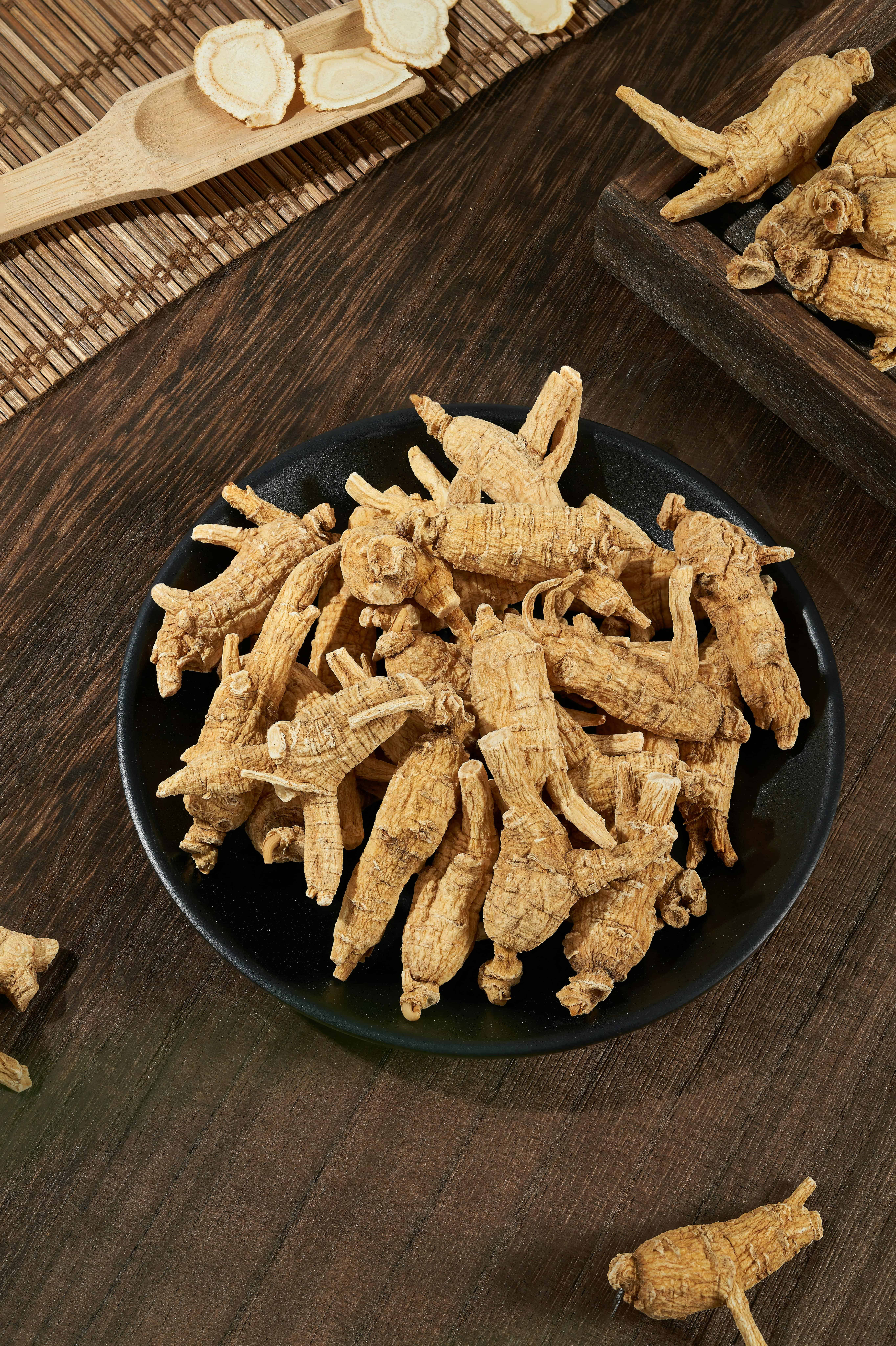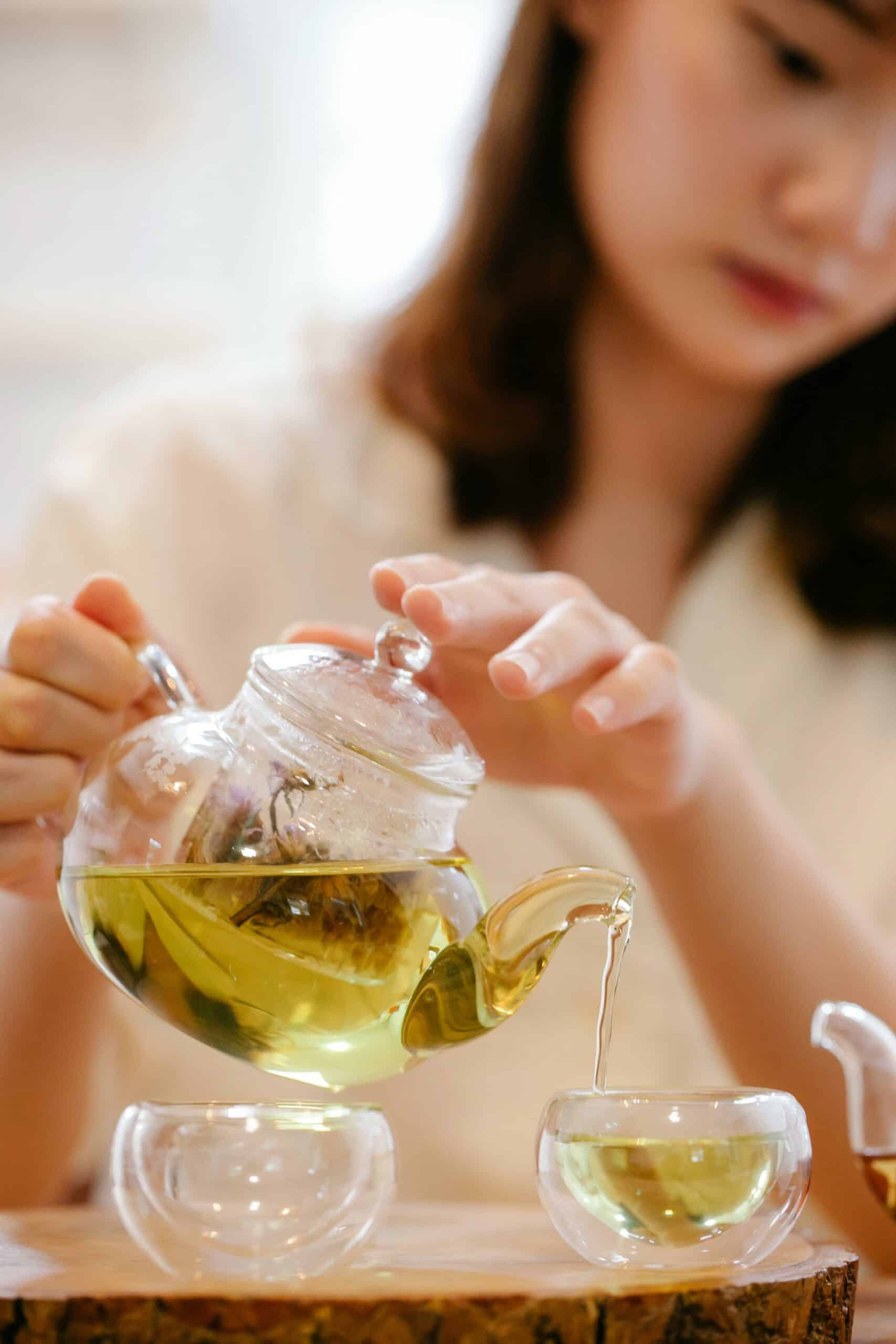Ginseng is a plant known for its fleshy roots and long history in traditional medicine. It comes in various types, such as Korean ginseng, American ginseng, and South China ginseng.
Ginseng may help boost brain health, support the immune system, and manage blood sugar levels. These potential benefits make it a popular choice in herbal supplements and teas.
People have used ginseng for centuries, not just for its medicinal qualities but also in cooking. You can find it in many forms, including whole roots, powders, and extracts. It's believed to help reduce inflammation and fatigue, offering a natural way to improve well-being.
Despite its popularity, more research is needed to fully understand ginseng's effects. The right dosage and possible interactions with other medications are also a must-know. For those interested in natural remedies, learning about ginseng's potential benefits can be quite fascinating.

Jump to:
🤔 Understanding Ginseng
Definition and Types
Ginseng refers to the root of plants in the Panax genus. The most well-known types are Panax ginseng (Asian ginseng) and Panax quinquefolius (American ginseng). Another variety often mentioned is Siberian ginseng, also known as eleuthero, which isn't a true ginseng but shares similar benefits.
Asian ginseng is primarily grown in Korea and China, and it's believed to have stimulating properties. American ginseng, native to North America, is thought to have a calming effect. Both types contain active compounds called ginsenosides, which are responsible for their health benefits.
Ginsenosides contribute to reducing inflammation, boosting the immune system, and regulating blood sugar levels. Each variety of ginseng contains different types and amounts of ginsenosides, giving them distinct effects.

Historical Use
Ginseng has been used in traditional Chinese medicine for thousands of years, considering it a powerful adaptogen that helps the body adapt to stress and improves energy levels. It was also used to enhance cognitive function and physical stamina.
In Korea, ginseng was particularly valued for its health-promoting properties and was used in teas, soups, and as a general tonic. American ginseng was traditionally used by Native American tribes for medicinal purposes, including improving digestion and relieving headaches.
Ancient texts and lore often attributed almost magical healing properties to ginseng and continues to influence its popularity and use in modern herbal medicine practices. Whether used as a remedy or a health booster, ginseng has a rich legacy in Asian and North American cultures.
🩺 Ginseng in Healthcare
Medical Benefits
Ginseng boasts a range of health benefits. It’s known for its antioxidant properties, which help protect cells from damage. This can reduce inflammation and lower the risk of chronic diseases.
It also helps regulate blood sugar levels, making it beneficial for diabetics. Studies suggest it may improve blood circulation and lower blood pressure, reducing the risk of heart disease. Additionally, ginseng can lower cholesterol levels, promoting heart health.
Ginseng’s immune-boosting properties help prevent and fight infections like colds and influenza.

Mental Health
Ginseng is also known to support mental health. It can improve cognitive function, enhancing memory and mental performance. Some studies indicate it may help reduce symptoms of stress, anxiety, and depression.
It’s believed to help with mental clarity and focus, making it a popular supplement among students and professionals. Regular ginseng intake might help reduce fatigue and improve overall mental well-being. Some evidence suggests it can also help with insomnia, promoting better sleep quality.
Ginseng for Specific Conditions
Ginseng is used to treat specific health conditions. It can help regulate blood sugar levels in people with diabetes, and research indicates it may be effective in managing symptoms of erectile dysfunction.
It’s also used to ease menopausal symptoms like hot flashes and mood swings. Some believe it may have cancer-fighting properties due to its antioxidants.
Ginseng's anti-inflammatory effects can help with conditions like arthritis. It’s also thought to boost energy levels and reduce fatigue, making it a useful supplement for people with chronic fatigue syndrome or similar conditions.
🫚 Ginseng Consumption
Different Forms
Ginseng is available fresh, dried, or as an extract. Fresh ginseng can be eaten raw or lightly steamed. Dried ginseng can be ground and used in teas or soups. White ginseng is simply dried without being steamed, while red ginseng has been steamed and dried, making it more potent.
Ginseng tea is one popular form. Pre-packaged ginseng tea bags make it easy to brew, but ginseng root slices are just as effective. Ginseng powder is another option, perfect for adding to smoothies or cooking.

Dietary and Herbal Supplements
Ginseng is widely used in dietary supplements and herbal medicines. These supplements might come in the form of capsules, tablets, or energy drinks. They often contain a specific dosage listed on the label. It's essential to follow the recommended dosage to avoid side effects.
Always check the FDA approval on the label when choosing a supplement to ensure you're getting a quality product. Some ginseng supplements combine with other herbs to enhance their effects. Ginseng extract is a concentrated form found in many herbal supplements.
When choosing any form, it's vital to consider quality since the effectiveness can vary. Always opt for products from reputable brands or consult with a healthcare provider.
⚠️ Potential Risks and Interactions
Side Effects
Ginseng may cause side effects in some people. Common reactions include headache, dizziness, and diarrhea. Some may experience insomnia, making it hard to sleep.
High doses or prolonged use can lead to more serious problems like bleeding disorders. If someone has allergies, they might experience hives, trouble breathing, or swelling of the face, lips, tongue, or throat. These symptoms require immediate medical help.
It's essential to monitor how your body reacts to ginseng and stop using it if adverse symptoms develop. It's also wise to consult with a healthcare provider before starting any new supplement, especially for those with existing health conditions.

Drug Interactions
Ginseng can interact with various medications and may amplify or diminish their effects. For example, taking ginseng with blood thinners like warfarin can increase the risk of bleeding.
Diabetes patients should be careful as ginseng might lower blood sugar levels. If they’re on diabetes medications, ginseng could potentially cause their blood sugar to drop too low.
There's also a risk when combining ginseng with stimulants like caffeine, which may lead to increased heart rate or high blood pressure. Additionally, people using monoamine oxidase inhibitors (such as phenelzine) should avoid ginseng as it can cause severe side effects.
Always provide your healthcare provider with a full list of the supplements, herbs, and medications you’re taking to prevent harmful interactions. This ensures the safe and effective management of any treatments being used.
👨🦳 Ginseng for Specific Populations
Children and Adolescents
Children and adolescents may react differently to ginseng compared to adults. There's limited research on how ginseng affects young people, but some studies suggest it might help with memory and cognitive function.
Ginseng might be used to boost energy levels in kids who're active or in school. However, the impact on blood sugar levels needs to be watched closely, especially in those with insulin issues.
Parents should consult a doctor before giving ginseng to their children to avoid potential side effects. Lower doses and monitoring for adverse reactions are generally advised.

Elderly Considerations
Ginseng might offer several benefits to the elderly. For instance, it could help enhance cognitive function and memory. Older adults often look for ways to maintain mental clarity, and ginseng's potential neuromodulating effects might be useful.
Regarding energy levels, ginseng can also help boost vitality, making it popular among seniors. However, caution is needed as ginseng can affect blood sugar and insulin.
Older adults should start with small doses and consult healthcare providers to avoid interactions with existing medications. Monitoring is crucial to ensure it's safely integrated into their routine.
❓ Frequently Asked Questions
Regular use of ginseng can help boost the immune system and may lower blood sugar levels. It's often used to improve energy and mental performance. Some people find it helps reduce stress and enhance overall well-being.
Ginseng is known for its potential to improve sexual well-being. Many believe it can enhance libido and help with erectile dysfunction. This makes it a popular supplement in herbal medicine for those seeking to boost sexual health.
Some may experience side effects such as high blood pressure, insomnia, anxiety, diarrhea, or headaches. It is important to monitor any adverse effects and consult a healthcare provider.
People with certain health conditions or those taking specific medications might need to avoid ginseng. For example, individuals who are pregnant, have high blood pressure or are on blood thinners should be cautious. Always consult a healthcare provider before starting ginseng supplements.
Ginseng tea is a popular choice and can be a more soothing way to consume ginseng. It provides the same benefits as ginseng capsules or extracts but with a relaxing experience. Some find the ritual of drinking tea adds to its calming effects.
Ginseng may help improve skin health by reducing inflammation and increasing hydration. It is often found in skincare products that aim to rejuvenate the skin and provide a youthful glow. Regular use can contribute to healthier, more vibrant skin.





Comments
No Comments